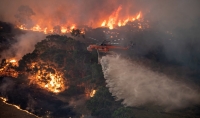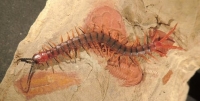
Mike Lee
Professor in Evolutionary Biology (jointly appointed with South Australian Museum), Flinders University
Michael Lee is an evolutionary biologist at the South Australian Museum and Flinders University who is interested in major transitions in evolution. Among other things, he is currently studying why lizards lose their legs, how turtles got their shells, why sea snakes took to the water, and what caused evolution's "big bang" (the Cambrian explosion).

Giant eagles and scavenging vultures shared the skies of ancient Australia
Nov 19, 2023 05:53 am UTC| Nature
Today, Australia is home to 17 species of hawks and eagles. But the fossil record shows some other, rather special raptors were present in the relatively recent past. Tens of thousands of years ago, Australia was home...

Australia's bushfires could drive more than 700 animal species to extinction
Jan 14, 2020 23:29 pm UTC| Insights & Views Nature
The scale and speed of the current bushfire crisis has caught many people off-guard, including biodiversity scientists. People are scrambling to estimate the long-term effects. It is certain that many animal species will...

Life quickly finds a way: the surprisingly swift end to evolution's big bang
Feb 19, 2019 16:56 pm UTC| Insights & Views Science
The Cambrian explosion more than 500 million years ago is often considered biologys big bang. Virtually all the major kinds of animals evolved in lifes greatest ever burst of evolution, rapidly populating a weird and...
- Market Data









































